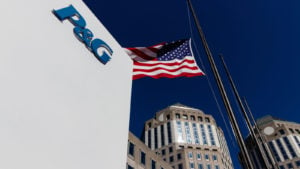I don’t think it’s any surprise that dividend stocks and safety stocks continue to perform well, given the uncertain environment. If we look outside of the year-to-date and one-year performances, we can focus on dividend stocks for steady income rather than purely on performance. These are dividend stocks with consistent payouts and a history of being shareholder friendly.
Some investors want dividend stocks with long-term growth potential. Others want dividend stocks that never cut dividends.
Given that there is a decently large group of stocks out there that have not only paid, but raised, their annual payouts for four or more decades, there are a lot of names to choose from.
Ultimately, we are on the hunt for companies that have businesses that won’t go out of style, will adapt to the ever-changing times and have a management that’s focused on the payout.
With that, let’s look at some dividend stocks that will have steady income for decades to come.
PepsiCo (PEP)

PepsiCo (NYSE:PEP) has been one of the leading dividend stocks for steady income for several decades now. However, more than just income-oriented investors have been piling into this one, as the stock recently hit all-time highs as it closed in on the $200 area.
The latest dividend increase was a 10% bump, while the firm also recently raised its full-year organic growth guidance. I like PepsiCo not just because the company has raised its annual payout for 51 consecutive years, but because it has a very strong brand.
That brand spans across the entire grocery store. Whether that’s orange juice, Pepsi, or Cheetos, the firm has its hands all over the food and beverage world.
One knock? PepsiCo stock pays a dividend yield of “just” 2.6%. In a world where investors can get a risk-free yield in excess of 5% in US Treasury bills, this type of payout is not exactly blowing off the roof.
That said, this yield will swell on a pullback. As outlined, the firm has raised this payout every year for more than five decades. I suspect it will repeat that streak in the future.
Starbucks (SBUX)

Starbucks (NASDAQ:SBUX) is not yet a dividend aristocrat, which is described as: “companies in the S&P 500 index that have increased their dividends in each of the past 25 consecutive years.”
However, Starbucks’ management has made the dividend a focus. While the company currently yields 1.98%, which is admittedly a low payout, it has been raised 12 years in a row now. The five-year growth rate is at an impressive 13.15%.
Long-term bulls will argue that the company continues to rapidly grow its business. Analysts expect double-digit sales growth this year and next year alongside 16% earnings growth in 2023 and almost 20% growth in 2024.
Starbucks is a cash cow and will continue to that trend for many years into the future. In some ways, it reminds me of McDonald’s (NYSE:MCD) from a few decades ago — a name that could be on this list as well!
Procter & Gamble (PG)

Last but not least, we have a true dividend champion in Procter & Gamble (NYSE:PG). P&G has paid — and raised– its annual dividend for 67 consecutive years. It’s in rarified air when we talk about dividend hikes.
Like PepsiCo though, the run in the stock price has lowered the dividend yield. While the stock currently pays out a 2.44% yield, shares recently hit a 52-week high and are just a stone’s throw from all-time highs. It’s a tad rich at roughly 26 times earnings.
Does that make it a buy right here, right now?
Not necessarily. Ideally, we will get a healthy pullback in this name, allowing investors to lower their risk (and raise their yield) and/or accumulate the stock at lower prices. However investors choose to approach P&G though, understand it’s a dividend champion and for good reason.
On the date of publication, Bret Kenwell did not have (either directly or indirectly) any positions in the securities mentioned in this article. The opinions expressed in this article are those of the writer, subject to the InvestorPlace.com Publishing Guidelines.
